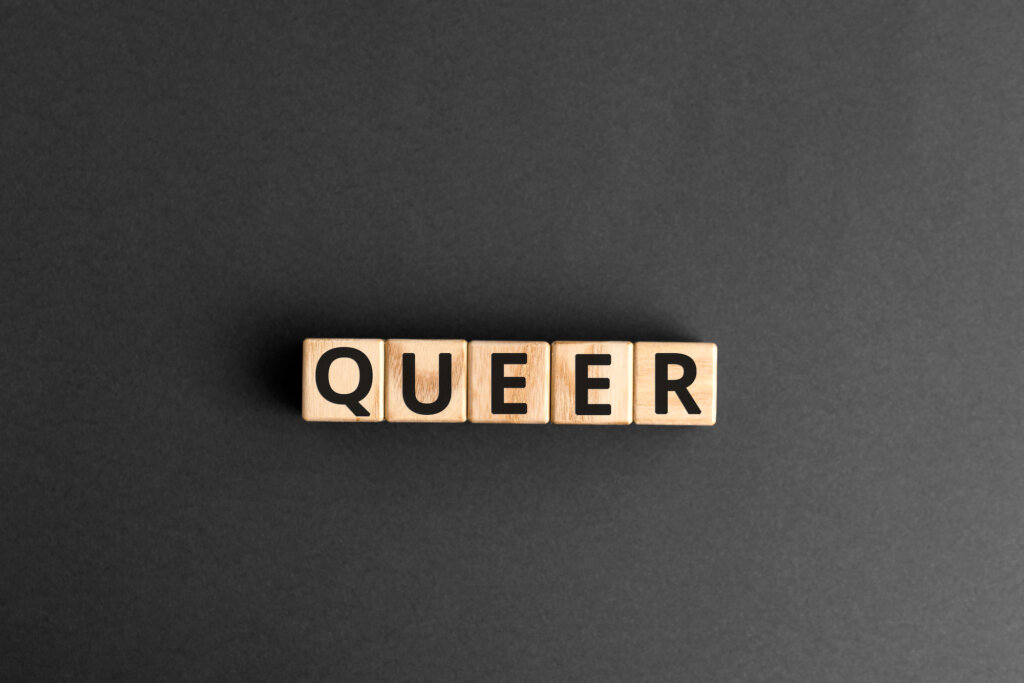Gender Dysphoria and Queer Theory: A New Perspective


Written and verified by the psychologist Gorka Jiménez Pajares
The term gender dysphoria is currently under debate. In fact, some authors state that it falls more within the domain of queer theory than within professional and scientific knowledge. As a result, there have been remarkable advances in its understanding.
We’re aware of the controversies that gender dysphoria and queer theory can raise. And, in this article, we’re going to analyze them, according to the latest advances provided by the American Psychiatric Association in the fifth edition of the Diagnostic and Statistical Manual of Mental Disorders (hereinafter, DSM-5-TR., 2022).
“Prudence is right reason in action.”
-Plato-
Differentiating terms according to the American Psychiatric Association
Before proceeding, it’s worth defining the different terms according to the DSM-5-TR (APA, 2022). When the term sex is used, reference is made to the biological indicator that indicates whether the individual was born with male or female genitalia. On the other hand, when the word gender is used, it refers to the role that the individual adopts. In other words, whether they’re perceived as a man or a woman.
Gender is assigned when the individual is born. For example, if they come into the world a biological female biological, they’re assigned the female gender. Despite this fact, it can happen that their gender is atypical (APA, 2023).
Some individuals, despite being a specific sex, perceive and describe themselves as the opposite gender. Faced with this situation, gender dysphoria may appear. This relates to the discomfort, suffering, and anguish that the individual experiences as a consequence of the inconsistency between the gender they were assigned at birth and the gender with which they identify.
“Some adults and adolescents may have a strong desire to be a different gender and be treated as such, and may have the inner certainty of feeling and responding as their experienced gender.”
-American Psychiatric Association-

Gender dysphoria
The World Health Organization (WHO) doesn’t consider gender dysphoria to be a clinical entity. However, the American Psychiatric Association disagrees (APA, 2022). They define it as a deep discrepancy between the gender assigned at birth and the one with which the individual expresses themselves. For gender dysphoria to be diagnosed, the discomfort resulting from this discrepancy should’ve lasted for at least six months. In addition, the following symptoms must be present (APA, 2o22):
- The desire to be treated in a manner consistent and coherent with the gender with which the individual identifies.
- The desire to possess the sexual characteristics of the gender with which they identify.
- Longing to be able to eliminate the morphological characteristics of the gender with which they feel at odds.
- Intensely wanting to belong to another gender or repeatedly behaving with behaviors typical of the other gender.
- Having a deep conviction that they feel, behave, and think in a way that’s consistent with the gender with which they identify.
It’s common for individuals in the vital stages of adolescence, as well as adulthood, to choose to behave and dress according to their perceived gender. In fact, if their environments, friends, and families accept them as they are, and they can express themselves freely, the discomfort they experience as a result of frequent social rejection tends to decrease (Rabito-Alcón et al., 2016).
“Cases of gender dysphoria have been reported in a multitude of countries and cultural contexts throughout the world.”
-American Psychiatric Association-

Beyond Queer Theory: A controversial issue
The famous Spanish psychologist, Marino Pérez Álvarez, recently published an analysis regarding the impact that queer theory has on the collective imagination concerning this clinical condition. He claims that psychology is capable of providing scientific knowledge on the issue, unlike queer theory (Pérez-Álvarez et al., 2022).
For example, thanks to psychological research, we know that a multitude of factors are involved in the formation of identity, including social and cultural determinants. Likewise, we know how feelings are formed and originate and understand that they’re influenced by the social context in which the individual develops.
Therefore, Pérez-Álvarez proposes that, instead of approaching gender dysphoria from the queer perspective, it should be examined from a scientific perspective. He suggests that this viewpoint, in addition to being objective, would be extraordinarily empathetic; since its objective is “to find the best way of offering appropriate aid”.
As we mentioned at the beginning of the article, this is a rather controversial topic. For this reason, we decided to approach it in the same way as the American Psychiatric Association. After all, together with the WHO, they’re the scientific reference points for mental health professionals all over the world.
“Treating people equally does not mean treating them the same, but taking into account their unique needs so that they have the same opportunities to achieve as full a life as possible.”
-Marino Pérez-Álvarez-
All cited sources were thoroughly reviewed by our team to ensure their quality, reliability, currency, and validity. The bibliography of this article was considered reliable and of academic or scientific accuracy.
- Bolden, B. (2022). DSM-5-TR 2023 (Spanish Edition).
- Pérez-Álvarez, M., Errasti, J. La psicología ante la disforia de género, mas allá de la ideología queer. Papeles del psicólogo (2022). https://doi.org/10.23923/pap.psicol.3001
-
Rabito Alcón, M. F., & Molina, J. M. R. (2016). Satisfacción con la vida y bienestar psicológico en personas con disforia de género. Actas Españolas de Psiquiatría, 44(2), 47-54.
This text is provided for informational purposes only and does not replace consultation with a professional. If in doubt, consult your specialist.








